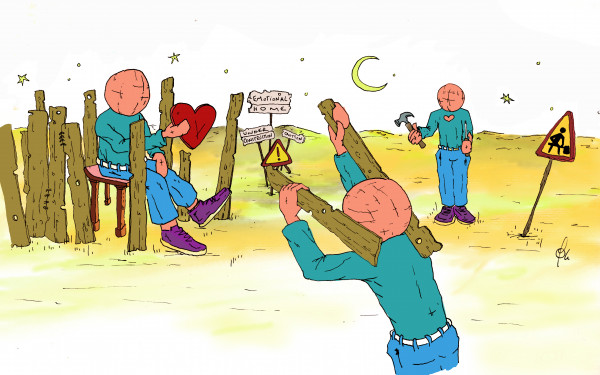Is Our Penal System Lacking?
Prisoners Deserve Mental Health Care Too
Jean Marc Bougie and Marie Beemans aren’t exactly sure how the penal system should be remodeled, but they know one thing: that more attention needs to placed on inmate’s mental health in order to prevent recidivism.
Bougie is a former inmate and Beemans is an advocate for prison reform and prisoner’s rights. From 1983 to 1986, she organized a successful nationwide campaign against Canada’s proposed return of the death penalty.
“Quite honestly, I don’t have the answer, but I know it starts with looking at the other person as a human being, and as human being in need of care,” Bougie said at a Nov. 16 University of the Streets Café discussion, hosted at Café l’Artère on Parc Ave.
A group of 30-odd people met to discuss the downsides and issues that exist within our penal system.
University of the Streets Café is part of the Office of Community Engagement at Concordia. They’ve been hosting weekly events all fall at cafes around Montreal and getting citizens from all walks of life to sit down and share perspectives on various topics of interest in casual, informal settings.
Both Beemans and Bougie agreed that in the current legal system, punishment is capital. They advocate reforming to focus on the root cause, for which Beemans said there’s “a neglect.”
The problem, she said, was that instead of looking at the bigger picture, the penal system focuses primarily on retribution, treating inmates with a lack of compassion and by giving them “revenge in the form of banishment.”
“We can’t continue with this notion of an eye for an eye,” Bougie said.
Beemans argued revenge is not effective at reducing crime, citing the data from countries that practice the death penalty where there was no significant decrease in crime rates.
They argued that the method of treating criminals with revenge, by ostracizing them from society and dehumanizing them, only exacerbates the problem because it harms prisoners’ mental health. In turn, it makes prisoners more likely to continue committing crimes when they get out, keeping them trapped in a vicious cycle.
“Where did they first meet? Shawbridge. They knew each other in the juvenile system,” Bougie said of Quebec prisoners, who seemed to be trapped in the cycle of reoffending. “Then after that, when they hit 18, they met up at Bordeaux […] and when they graduated from there, they met each other in the pen.”
Research at Carleton University has shown that harsher punishments don’t reduce recidivism. But when prisoners have access to rehabilitative programming, which includes access to services such as educational training, and vocational training, recidivism reduces by 30 to 50 per cent. These services also include programs which allow prisoners to engage in recreational and leisurely activities, and access correctional training, which focuses on anger management, or on helping sexual offenders to understand the effect they have on their victims,
Bougie said if we are to try to remodel our penal system, we should look to Norway. It has the lowest recidivism rate in Europe.
In Norway, prisoners have access to education and job training. They generally live in dorms, where they can socialize with other inmates.
Bougie said that the fundamental difference between the Norwegian penal system and the North American system is that while we dehumanize our prisoners, Norway treats its criminals like human beings worthy of respect.
Beemans believes that Quebec is getting on the right track, though, because it “punishes the least” in regards to youth offenders.
More and more, youth detention centres like Cité des Prairies in Rivière-des-Prairies are focusing less on punishment and more on training youth in anger management, providing them with rehabilitation for their drug problems, and trying to help them improve their social and problem-solving skills.
As Beemans says, it’s important to remember to “punish the crime and not the person.”

web_900_602_90.jpg)
_600_832_s.png)

_600_375_90_s_c1.jpg)

